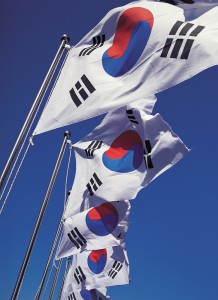NPA members recently gathered in Beijing, China for a Global Owners Meeting. Part of the agenda was devoted to learning and discussing international recruiting needs throughout Asia. Thank you to NPA members Stan Tan from PHR Executive Search and Alban d’Sa from Gemini Personnel Pte Limited for sharing their knowledge of the Singaporean economy.
 Singapore has been rated as #1 in Asia for quality of life, with the 3rd most globalized economy among 60 of the world’s economies. It is also rated as the most politically stable country in Asia. The World Bank has named Singapore #1 in the world for ease of doing business, for the seventh year in a row. Current market conditions include slowdowns in the banking and technology sectors.
Singapore has been rated as #1 in Asia for quality of life, with the 3rd most globalized economy among 60 of the world’s economies. It is also rated as the most politically stable country in Asia. The World Bank has named Singapore #1 in the world for ease of doing business, for the seventh year in a row. Current market conditions include slowdowns in the banking and technology sectors.
Some other economic highlights:
- Employment creation moderated in the third quarter of 2012, after increasing in the previous quarter. Preliminary estimates show that total employment grew by 24,900 in the third quarter of 2012, down from the increase of 31,900 in the same period last year and 31,700 in the second quarter of 2012. International recruiting opportunities still exist, though slightly lower from earlier in the year.
- The growth in employment slowed in services from 21,200 in the third quarter of 2011 to 11,300 in the third quarter of 2012 and manufacturing from 3,900 to 3,700. Boosted by public infrastructure projects, construction continued to register strong employment increase of 9,800 in the third quarter of 2012, up from 6,700 in the same quarter last year.
- Layoffs rose after declining in the preceding two quarters. An estimated 3,300 workers were made redundant in the third quarter of 2012, mainly driven by higher layoffs in electronics manufacturing and retail. This was one of the few higher quarterly redundancy figures reported in post-recessionary periods, though it was substantially lower than the highs of 6,000 to 12,800 per quarter registered during the last recession.
- Unemployment rates remained low, reflecting strong manpower demand amid the tightening in foreign manpower controls. The seasonally adjusted overall unemployment rate dipped marginally to 1.9% in September 2012 from 2.0% a quarter ago, while the unemployment rates for residents and Singapore citizens were unchanged at 2.8% and 3.0% respectively.
While layoffs have increased somewhat, the continued low unemployment rate in Singapore means employers continue to have international recruiting needs. Recruiters with global partnerships are well-poised to meet this demand.


